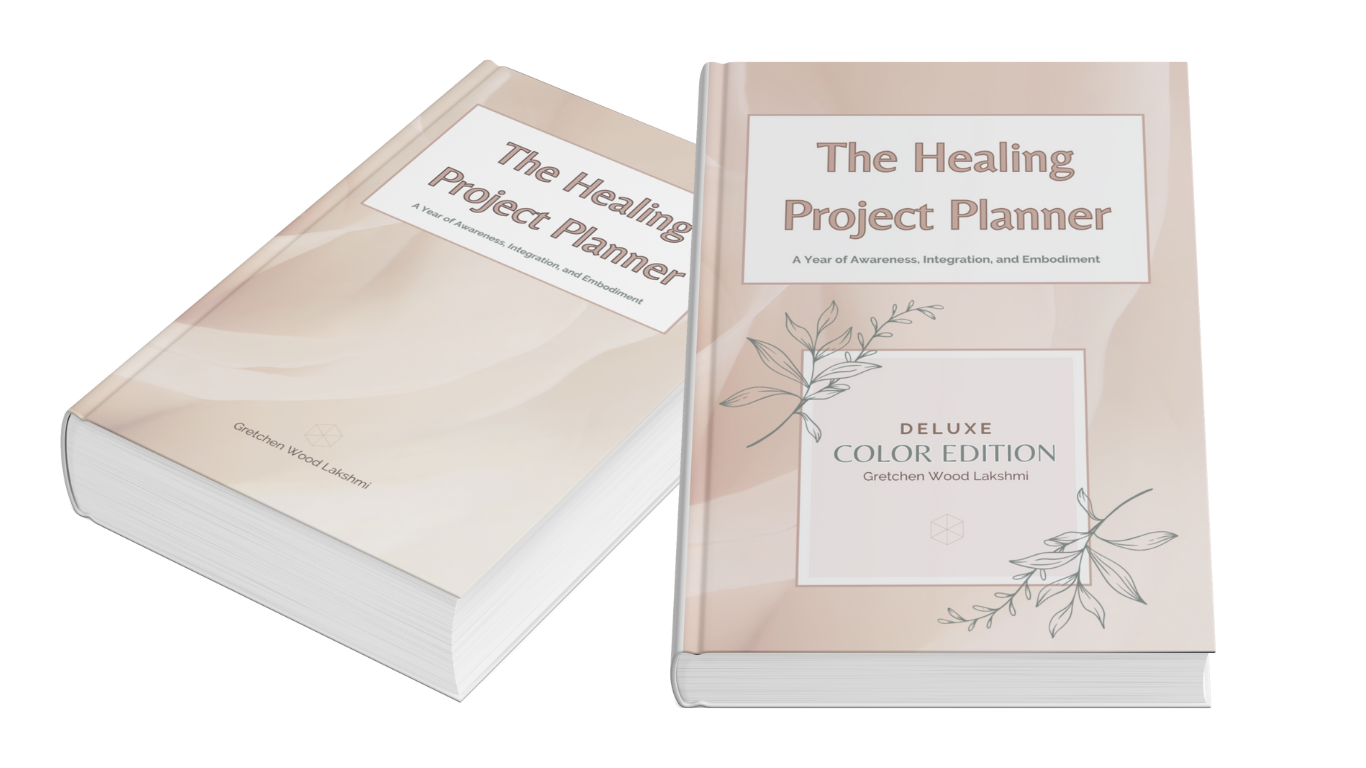25 Signs That You Survived Abuse
Recognize + Heal the Symptoms of Abuse
If you've found your way here, you may be navigating the complex path of surviving abuse. It's an exhausting ride with constant twists and turns, and sometimes, the path forward can seem locked away in the darkness. As you deepen into your work of self-discovery and healing, it's important to remember that you are never alone.
Surviving abuse can leave a major imprint on every level of your being, from your
physical health to your
emotional well-being, and even your
social interactions. Yet, despite the intensity of these experiences, they can often be challenging to articulate or share with others, and can even be easy to dismiss. The feelings and symptoms that arise as a result of abuse can feel overwhelming, confusing, and at times, isolating.

By sharing the following list of symptoms that might signal you've survived abuse, my intention is to provide you with a roadmap—a guiding light to help you navigate your survival. I understand that reading through these symptoms may evoke a range of emotions, from recognition and validation to grief and anger. It's okay to feel whatever arises within you as you read through these words. Your emotions are valid, and they deserve to be acknowledged and honored.
So, as you take in this list, you're invited to approach it with compassion and self-kindness. Take it one step at a time, and remember to be gentle with yourself along the way. You've already shown incredible strength and resilience by committing to your healing, and I'm here to support you every step of the way.
Physical Symptoms of Abuse:
1.
Chronic Pain: Persistent physical pain, such as headaches and nerve pain, can stem from the chronic stress and tension associated with abuse.
2.
Sleep Disturbances: Difficulty sleeping, nightmares, and flashbacks during sleep are common among survivors of abuse.
3.
Changes in Appetite or Weight: Stress and trauma can affect eating habits and metabolism, leading to changes in appetite and weight.
4.
Substance Abuse: Some survivors may turn to substances like drugs or alcohol as a way to cope with emotional pain.
5.
Gastrointestinal Problems: Digestive issues like irritable bowel syndrome (IBS) can manifest due to stress and anxiety from abuse.
6.
Cardiovascular Issues: Prolonged exposure to stress hormones can increase the risk of cardiovascular problems like high blood pressure, heart disease, and stroke.
7.
Autoimmune Disorders: There is evidence to suggest a link between chronic stress and trauma from abuse and the development or exacerbation of autoimmune conditions.
8.
Reproductive Health Problems: Abuse can impact reproductive health, leading to menstrual irregularities, sexual dysfunction, or complications during pregnancy.
Psychological Signs of Abuse:
9.
Anxiety: Persistent feelings of anxiety, including excessive worry and hypervigilance, are common among abuse survivors.
10.
Depression: Feelings of sadness, hopelessness, and despair can result from the trauma and stress of abuse.
11.
Post-Traumatic Stress Disorder (PTSD): Many survivors develop PTSD, characterized by intrusive memories, avoidance, negative changes in mood, and heightened arousal.
12.
Dissociation: Survivors may mentally detach from experiences as a coping mechanism to protect themselves from overwhelming emotions.
13.
Low Self-Esteem: Abuse can erode self-worth and lead to feelings of shame and worthlessness.
14.
Difficulty Trusting Others: Betrayal and broken trust are common themes in abusive relationships, making it challenging for survivors to trust others, even in healthy relationships.
15.
Emotional Dysregulation: Survivors of abuse may struggle with regulating their emotions, experiencing intense mood swings, anger, irritability, or emotional numbness.
16.
Guilt and Shame: Many survivors of abuse carry feelings of guilt and shame, blaming themselves for the abuse or feeling ashamed of what happened to them.
17.
Difficulty Establishing Boundaries: Abuse often involves the violation of boundaries, leading survivors to struggle with setting and maintaining healthy boundaries in relationships.
18.
Cognitive Distortions: Gaslighting and manipulation by the abuser can lead survivors to doubt their own perceptions of reality and develop distorted beliefs about themselves, others, and the world around them.
Social + Behavioral Symptoms:
19.
Social Withdrawal: Survivors may isolate themselves from social interactions due to shame or fear of judgment.
20.
Relationship Difficulties: Abuse can impact the ability to form and maintain healthy relationships.
21.
Avoidance Behaviors: Survivors may avoid situations or people that remind them of the trauma.
22.
Self-Harming Behaviors: Engaging in self-harm can be a coping mechanism to deal with overwhelming emotions.
23.
Suicidal Thoughts or Behaviors: The trauma of abuse can contribute to feelings of hopelessness, despair, and worthlessness.
24.
Perpetuating the Cycle of Abuse: Unfortunately, some individuals who have experienced abuse may go on to perpetuate the cycle of abuse in their own relationships or families.
25.
Self-Neglect in Relationships: Excessive prioritization of a partner's needs at the expense of your own can be a sign or symptom of underlying abuse within relationships.
So, how many of these 25 signs have you personally experienced? If you resonate with any of these symptoms, know that you're not alone, and support is available. Seek out trauma-informed therapy, connect with support groups, and prioritize self-care on your healing journey. Remember, healing is possible, and you deserve to live a life free from abuse.
With empathy and support,
Gretchen
SOMATIC TRAUMA SPECIALIST + ENERGETIC INTUITIVE








